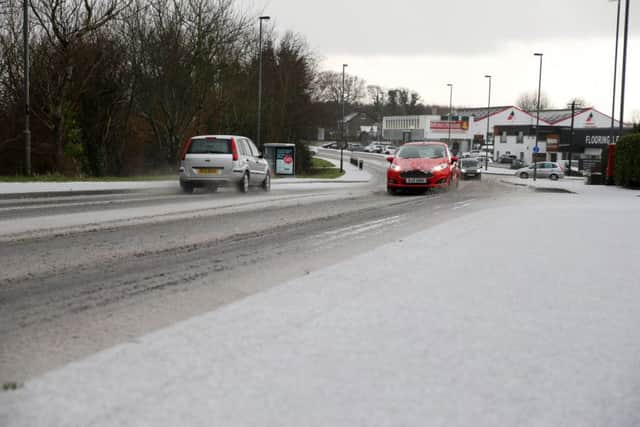Driest winter for half century


The Observatory, which has been recording weather at Armagh since 1795, also reports that February 2017 was warmer, duller and drier than average, the warmest, dullest and driest February since 2012.
In a statement to press, a spokesperson for Armagh Observatory said: “Taking the three meteorological winter months as a whole, that is, December 2016 and January and February 2017, winter 2016/2017 has been very dry, and also dull and mild. Coming after a very dry autumn, these three winter months have been the driest at Armagh for 53 years, that is, since winter 1963/1964.
Advertisement
Hide AdAdvertisement
Hide Ad“Despite a wet end to the month, total February precipitation was just 48.1 mm (1.89 inches), including four trace values, less than 90% of the average February precipitation at Armagh. This month was the driest February at Armagh for five years, that is, since February 2012. Some snowflakes were noticed on the 10th, and a rainbow on the 28th. The wettest day was the 26th, with 16.4 mm of rainfall, followed by the 28th with 6.9 mm.
“The mean monthly temperature was approximately 6.0 degrees Celsius (42.8 degrees Fahrenheit), 1.4 C warmer than the long-term (1796-2010) average February temperature at Armagh and 1.1 C warmer than the most recent (1981-2010) 30-year average. This was the warmest February at Armagh for five years, that is, since 2012.
“The warmest day (highest maximum air temperature) was 12.6 C, which occurred on the 25th. The warmest night (highest minimum air temperature) was 8.5 C on the 20th. The coolest night (lowest minimum air temperature) occurred on the 11th, with a lowest minimum air temperature of -3.1 C. There were 14 nights with ground frost, the coldest of which, on the 11th, registered a minimum grass temperature of -10.5 C. There were 7 nights with air frost.
“With just 43.2 hours of strong sunshine, the month was much duller than average, amounting to just over 60% of the average number of strong sunshine hours for February at Armagh. This was the dullest February at Armagh since 2012. The sunniest day was the 27th, with 6.4 hours of strong sunshine, followed by 5.7 hours on the 8th.
Advertisement
Hide AdAdvertisement
Hide Ad“Taking the three 2016/2017 winter months together, this winter was very dry, mild and slightly duller than average. Total winter precipitation was 127.35 mm, including 15 trace values, making this the driest winter at Armagh for 53 years. The mean winter temperature was 6.21 C, the same as for the very warm winter 2011/2012, making this winter the warmest at Armagh for five years and the equal tenth warmest winter at Armagh since daily temperature records at Armagh Observatory began around 1795. A total of 145.7 hours of strong sunshine were recorded this winter, which is approximately 90% of the long-term (1881-2010) average for strong winter sunshine at Armagh.”